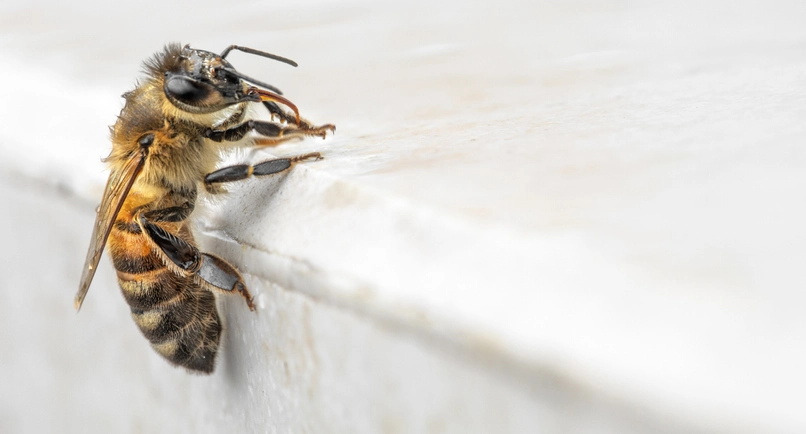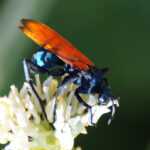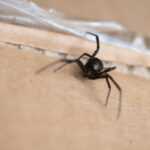While no one wants to be stung by any type of bee, last year’s deadly Arizona bee attack proved that the danger can be much more grave than a painful sting and its itchy aftermath. Thankfully, fatal incidents involving bees in Arizona are rare.
Knowing what to do when you encounter bees can help keep you and your loved ones safe. Learn how to be careful around bees in Arizona with Responsible Pest & Scorpion Control. Suspect you have a bee problem? Request a free bee control estimate today.
Are there really killer bees in Arizona?
In a word, yes. While you’re much likelier to see ordinary honeybees in Phoenix and other communities around the state, a hybrid version of these beneficial insects can be found here. In the 1950s, European honeybees were brought to South America in a bid to pollinate local plants.
The bees couldn’t survive the heat, so scientists cross-bred them with African bees. While the result was a hardier bee that could withstand the climate, the new breed was also much more defensive of its colony. Africanized honeybees escaped from Brazil and slowly migrated north. In 1993, killer bees in Arizona were discovered.
How can I tell if I’ve spotted killer bees in Arizona?
Africanized honeybees are smaller than their European counterparts. They’re golden-brown, striped, and slightly furry. These bees are also more adaptable. They can be found in tree limbs or cavities and in overhangs or other exposed areas around your property.
The differences between everyday honeybees in Arizona and their more aggressive cousins are very difficult to see with an untrained eye, though. Never take chances; keep your distance any time you see bees or their nests and contact pest professionals.
What should I do if I discover a beehive?
Never approach a beehive, or a wasp or hornet’s nest, for that matter. While everyday honeybees in Phoenix and other cities are much less aggressive in defending their colonies, allergic reactions to even a sting or two can be serious.
Bee allergies can even develop in adulthood, so you could go your whole adult life without allergies and experience a dangerous reaction with no warning. Protect yourself, your family, and your neighbors by calling a trusted pest control company if you come upon a hive or swarm of bees.
When do bees attack?
While any fatal bee encounter is tragic, deadly Arizona bee attacks are rare. Even Africanized honeybees generally keep to themselves unless they sense a threat to the colony. Luckily, you’re unlikely to be swarmed by killer bees in Arizona unless you come too close.
After a 2021 Arizona bee attack that resulted in one man’s death, authorities discovered that a 100-pound hive in a nearby tree had been disturbed. That’s why having pest control professionals remove hives from your property is essential.
How to Handle a Killer Bee Attack
Anyone coming within 50 feet of a killer beehive is in danger. Unlike European honeybees, the Africanized version sends out thousands of defenders when the colony perceives a threat. These bees will also chase you much farther than other bees in Arizona, so run as fast—and as far—as you can when chased. Jumping into a swimming pool or other body of water won’t protect you, either. Africanized honeybees will just patiently wait until you emerge to attack.
Be Prepared for Bees This Spring with Responsible Pest
Spring bee encounters are usually relatively harmless for those without allergies to the stinging insects. However, the introduction of killer bees in Arizona makes knowing what to do when bees attack an absolute must.
Responsible Pest & Scorpion Control helps protect residents of the Phoenix, Tucson, and Mesa areas from Arizona bee attacks. Contact us for a free quote at the first sign of bees to keep your family, pets, and visitors safe.




